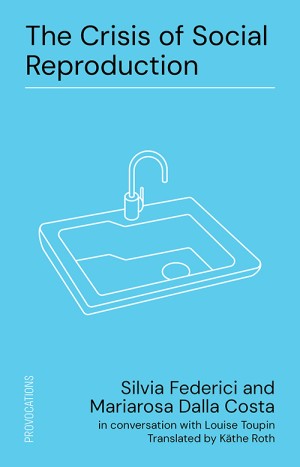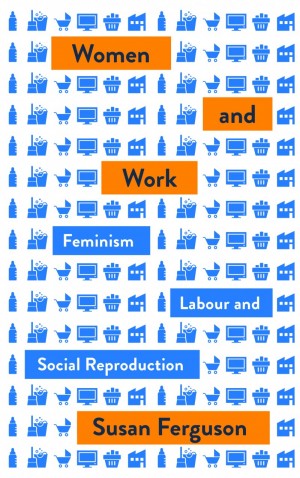
Patriarchy of the Wage
Notes on Marx, Gender, and Feminism
At a time when socialism is entering a historic crisis and we are witnessing a worldwide expansion of capitalist relations, a feminist rethinking of Marx’s work is vitally important. In Patriarchy of the Wage, Silvia Federici, best-selling author and one of the most important Marxist feminists of our time, asks why Marx and the Marxist tradition were so crucial in their denunciation of capitalism’s exploitation of human labour and blind to women’s work and struggle on the terrain of social reproduction. Why was Marx unable to anticipate the profound transformations in the proletarian family that took place at the turn of the nineteenth century, creating a new patriarchal regime?
In this fiery collection of penetrating essays published here for the first time, Federici carefully examines these questions and in the process has provided an expansive redefinition of work, class, and class-gender relations. Seeking to delineate the specific character of capitalist “patriarchalism,” this magnificently original approach also highlights Marx’s and the Marxist tradition’s problematic view of industrial production and the State in the struggle for human liberation. Federici’s lucid argument that most reproductive work is irreducible to automation is a powerful reminder of the poverty of a revolutionary imagination that consigns to the world of machines the creation of the material conditions for a communist society.
Praise
“Federici’s attempt to draw together the work of feminists and activists from different parts of the world and place them in historical context is brave, thought-provoking and timely. Federici’s writing is lucid and her fury palpable.”
– Red Pepper
“Real transformations occur when the social relations that make up everyday life change, when there is a revolution within and across the stratifications of the social body… . Silvia Federici offers the kind of revolutionary perspective that is capable of revealing the obstacles that stand in the way of such change.”
– Feminist Review
“Silvia Federici’s work embodies an energy that urges us to rejuvenate struggles against all types of exploitation and, precisely for that reason, her work produces a common: a common sense of the dissidence that creates a community in struggle.”
– Maria Mies, coauthor of Ecofeminism
“Reading Federici empowers us to reconnect with what is at the core of human development, women’s labor-intensive caregiving—a radical rethinking of how we live.”
– Z Magazine
“Federici has become a crucial figure for young Marxists, political theorists, and a new generation of feminists.”
– Rachel Kushner, author of The Flamethrowers
Contents
| Introduction | |
| One | Counterplanning from the Kitchen |
| Two | Capital and the Left |
| Three | Gender and Reproduction in Marx’s Capital |
| Four | Marx, Feminism, and the Construction of the Commons |
| Five | Revolution Begins at Home: Rethinking Marx, Reproduction, and the Class Struggle |
| Six | The Construction of Domestic Work in Nineteenth-Century England and the Patriarchy of the Wage |
| Seven | Origins and Development of Sexual Work in the United States and Britain |
| Bibliography | |
| Index | |
| About the Author |







